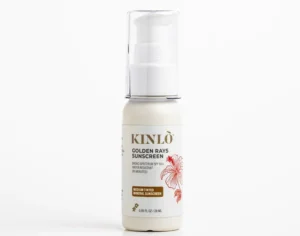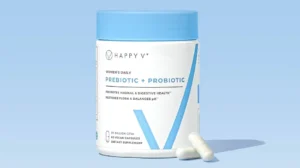Can You Take Probiotics and Fiber Supplements Together: The debate surrounding the benefits and drawbacks of combining probiotics and fiber supplements is one that has intrigued health and nutrition enthusiasts alike.
Is it possible to take these two simultaneously without causing adverse effects on your health?
This blog post will delve into probiotics and fiber, shedding light on this perplexing query.
Can You Take Probiotics and Fiber Supplements Together?

Absolutely, it is possible and even beneficial to take probiotics and fiber supplements simultaneously. This duo could potentially enhance your digestive health as they work hand in hand.
Probiotics are the “good” bacteria that your gut needs to function optimally. Fiber, particularly the soluble variety, serves as food for these beneficial bacteria, enabling them to multiply and function at their best.
However, like with all dietary changes, it is prudent to consult with your healthcare provider prior to initiating this combined supplementation to ensure it aligns well with your health needs and does not interact with other medications or treatments you might be undergoing.
Understanding Probiotics: Their Role and Benefits

Probiotics, often referred to as the “friendly” or “good” bacteria, are live microorganisms that offer numerous health benefits, particularly for our digestive system.
Contrary to the common perception of bacteria as harmful, probiotics are an essential part of our microbiome, the community of microorganisms living within our bodies.
These beneficial bacteria play pivotal roles in various aspects of our health. They assist in breaking down food and absorbing nutrients, making them essential players in the digestive process.
The balance they maintain in our gut can affect our immune function positively, as a significant portion of the immune system resides in the gut.
Apart from these roles, probiotics have been associated with other health benefits. Some studies have linked them to healthy body weight management, suggesting that they could potentially aid in weight loss or prevention of weight gain.
There’s also emerging evidence showing a connection between gut health and mental health, indicating that probiotics might also impact our mood and cognitive function.
The potential benefits of probiotics are vast and varied. However, keep in mind that the effects can vary from person to person, and a particular strain of probiotics that works for one individual may not work for another.
So, it’s essential to explore different strains and formulations to find what works best for your unique needs. Always consult a healthcare provider when considering adding a new supplement to your routine.
The Power of Fiber in Our Diet
Often overlooked, fiber holds immense value in maintaining optimal health. Although the human body cannot digest fiber, it plays an integral part in our overall wellness. It’s a type of carbohydrate that works silently in the background to support various bodily functions.
For instance, fiber plays a crucial role in weight management. How does it do this? Well, fiber creates a sense of fullness after meals, helping to curb unnecessary snacking and overeating that can lead to weight gain.
But the benefits don’t stop there. Fiber also plays a significant part in heart health. It can lower levels of low-density lipoprotein or LDL (also known as the ‘bad’ cholesterol), thereby reducing the risk of heart diseases.
When it comes to our gut health, fiber comes to the rescue again. It can help avoid constipation and maintain overall bowel health.
A particular type of fiber, known as prebiotics, plays a crucial role here. Prebiotics serve as nourishment for the beneficial bacteria in our gut, aiding their growth and development.
In essence, incorporating fiber into your diet is an excellent strategy for promoting good health, and when combined with probiotics, it can do wonders for your gut health.
Just remember, it’s always wise to consult with a healthcare provider when considering a new dietary approach or supplement.
How to Take Probiotics and Fiber Together Safely
Adding probiotics and fiber supplements to your regimen is a decision that should be made with care. To do so safely, it is crucial to maintain a balance in your intake.
Starting with a modest dosage of both supplements will give your body time to adjust to the changes, and the dosage can then be incrementally increased over a period of weeks.
Distributing the intake of these supplements at different times of the day can enhance their effectiveness.
For example, taking probiotics in the morning and a fiber supplement in the evening could be beneficial. This strategy allows your body to fully digest and absorb each supplement separately, potentially reducing the risk of gastrointestinal discomfort or other side effects.
However, this is not a definitive rule, and what works best can vary from person to person. Therefore, it’s important to pay attention to your body’s response and adjust your routine accordingly.
Potential Side Effects and Considerations
When introducing probiotics and fiber into your daily routine, be mindful of the potential reactions your body might have. Initial introduction of probiotics can cause minor digestive discomfort like gas, bloating, or an unsettled stomach.
This typically happens as your system acclimates to the influx of new bacteria. On the other side, fiber supplements may result in abdominal cramps, increased gas, bloating, or shifts in your bowel regularity.
If you notice these side effects, don’t panic. They are usually temporary as your body adjusts to these new additions. Start with smaller doses and gradually increase your intake over time can help minimize these side effects.
Most importantly, monitor your body’s response closely and seek medical advice if discomfort persists or worsens. Also, remember that every individual’s response to supplements can vary, so what works for one might not work for another.
Personalize your approach, listen to your body’s signals, and adapt your routine as necessary. In the end, your comfort and health should be the ultimate guides when introducing any new supplements into your diet.
Quality Matters: Choosing the Right Probiotics and Fiber Supplements
The choice of probiotics and fiber supplements can make a world of difference in their effectiveness. For probiotics, a product containing multiple bacterial strains can offer an array of benefits.
Each strain has a unique role and can contribute to overall gut health in its own way. By choosing a probiotic with diverse strains, you increase the chances of reaping a wider range of benefits.
When selecting fiber supplements, the focus should be on soluble fiber. This type of fiber acts as a prebiotic, providing food for the beneficial bacteria in your gut, thus enhancing their function and promoting a balanced gut environment.
The brand and quality of supplements also play a significant role. Opt for products from trusted, well-known brands that comply with high-quality manufacturing standards.
It’s advisable to check for certifications from third-party testing agencies to confirm that the product meets high-quality standards.
Also, ensure that the supplements you choose do not contain unnecessary additives or artificial ingredients. Natural and organic options are always a better choice, given they’re free from potential toxins that can disrupt your gut health.
Lastly, don’t overlook the importance of storage instructions. Probiotics, being live microorganisms, often need to be stored in certain conditions to remain effective.
Therefore, follow the storage instructions provided by the manufacturer to ensure you get the most from your probiotic supplement.
Remember, making an informed decision about your supplements is key to ensuring they provide the maximum benefit to your health.
The Importance of Diet and Lifestyle in Gut Health
Maintaining a healthy gut requires more than just the inclusion of probiotics and fiber supplements in your diet. It demands a holistic approach that also includes a well-rounded diet and a balanced lifestyle.
Consuming a diverse range of nutrient-rich foods like fruits, vegetables, whole grains, lean proteins, and healthy fats can significantly contribute to your gut health. Regular physical activity not only helps maintain a healthy body weight but also positively influences gut microbiota.
Adequate sleep is another critical factor as it helps your body and gut rest and rejuvenate. Managing stress levels through practices like meditation, yoga, or even leisure activities can also positively impact your gut health.
To put it simply, while supplements can certainly provide a boost, they are meant to enhance your overall health strategy, not act as a substitute for a healthy diet and lifestyle.
Always remember, achieving optimal gut health is a cumulative effort of various lifestyle factors and not reliant on supplements alone.

















